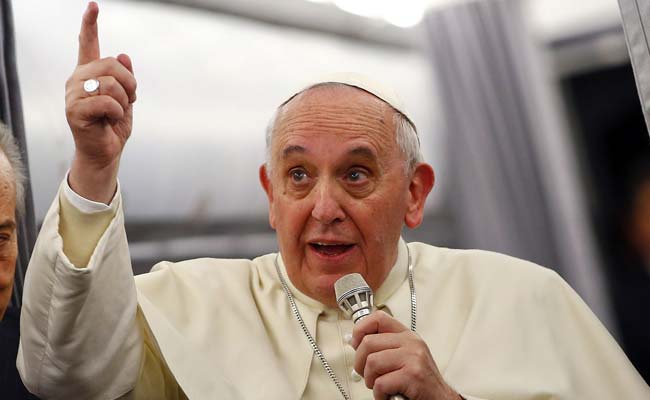continued … Pope Francis uses poetry,
prose and a steady stream of stern
recriminations to urge mankind onto a
path of survival in his recently
released environmental encyclical. He
says” very solid scientific consensus”
confirms global warming and rising
seas, and extreme weather events are
likely results. “A number of scientific
studies” show human-generated
greenhouse gases are mostly to blame.
“If present trends continue, this
century may well witness
extraordinary climate change and an
unprecedented destruction of
ecosystems, with serious
consequences for us all.” Overfishing
is rampant. Coral reefs are
barren. “Thousands of plant and
animal species disappear each year
which we will never know, which our
children will never see” largely
because of human activity, “We have
no right.” He blames a lack of
corrective response on a “powerful
opposition,” but also on people who
live in denial, indifference, nonchalant
resignation or “blind confidence” that
technology will eventually solve
everything. Most of what Pope
Francis has to say about climate
change and pollution, loss of
biodiversity, lack of access to water,
etc. is in the first chapter. A later
chapter looks at practical solutions
calling for some practical steps like
recycling and improving public
transportation, but the encyclical
repeatedly urges deep thinking and
dialogue to address the complex
symptoms now plaguing the planet.
Pope Francis calls for a drastic change
in “lifestyle, production and
consumption” from unstainable habits
to more mindful means of caring for
“our common home.” “What kind of
world do we want to leave to those
who come after us, to children who
are now growing up?” the Pope asks.
Many parts of Francis’ encyclical seem
profoundly pessimistic. People no
longer seem to believe that happy days
lie ahead, the Pope laments. The Pope
sees the ecological crisis as a
symptom of a deeper crisis – a human
crisis. He is calling on the world to
rediscover what it means to be human
— and as a result, to reject the cult of
economic growth and material
accumulation. Our care for the
environment is intimately connected
to our care for each other, he argues,
and we are failing miserably at both.
A casual attitude toward material
goods leads to a casual attitude toward
people. A willingness to exploit
creation is deeply connected to a
willingness to exploit human beings.
Ultimately, Pope Francis falls back on
the optimism of youth and mankind’s
ability to correct itself. “All is not lost,
human beings, while capable of the
worst, are also capable of rising above
themselves, choosing again what is
good, and making a new start.”
The Encyclical letter is available
online at http://w2.vatican.va/content/
francesco/en/encyclicals/documents/
papa-francesco_20150524_enciclicalaudato-
si.html
Sources: TheGuardian.com, USA Today, CNN.com,
Vox.com
